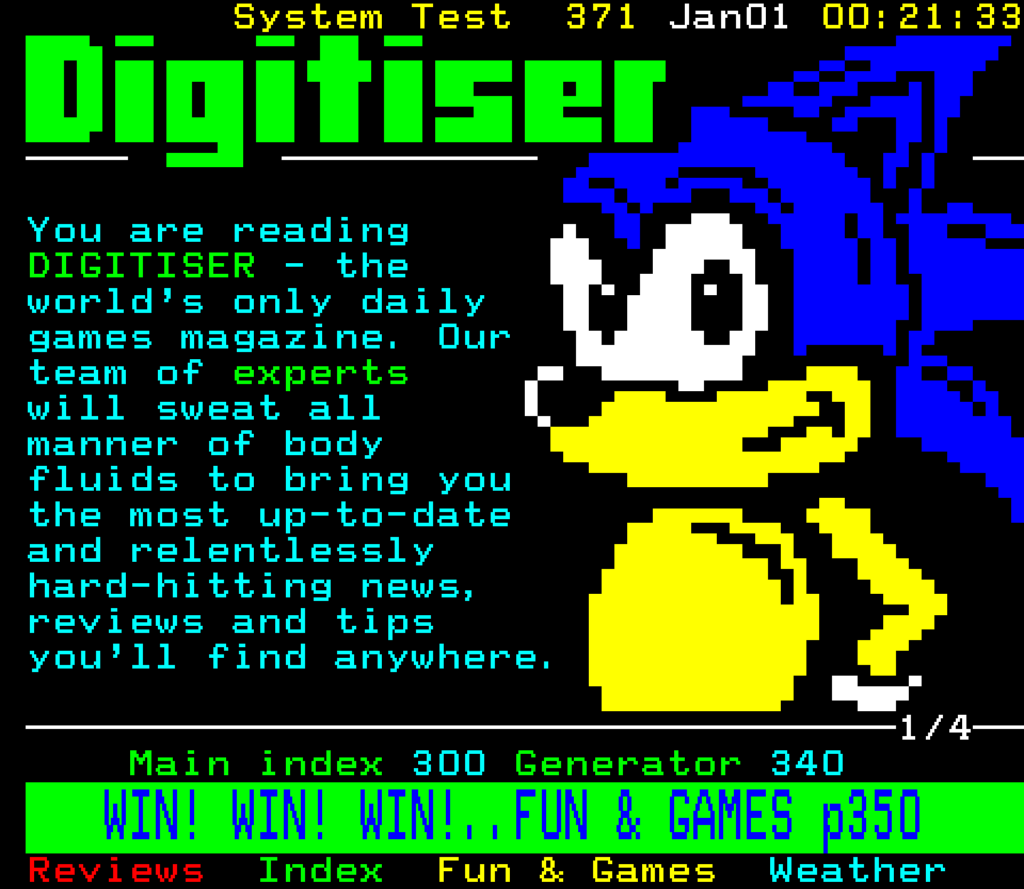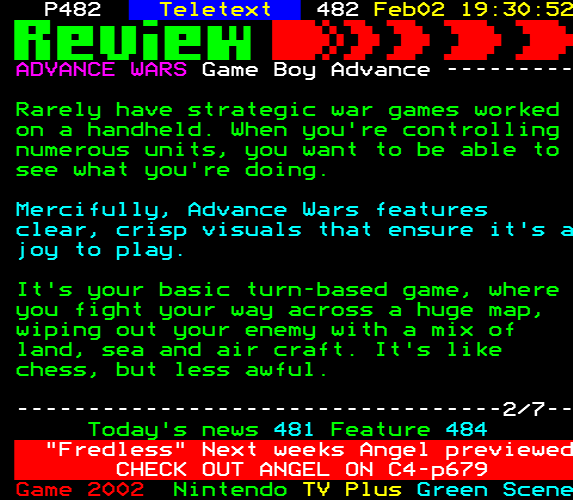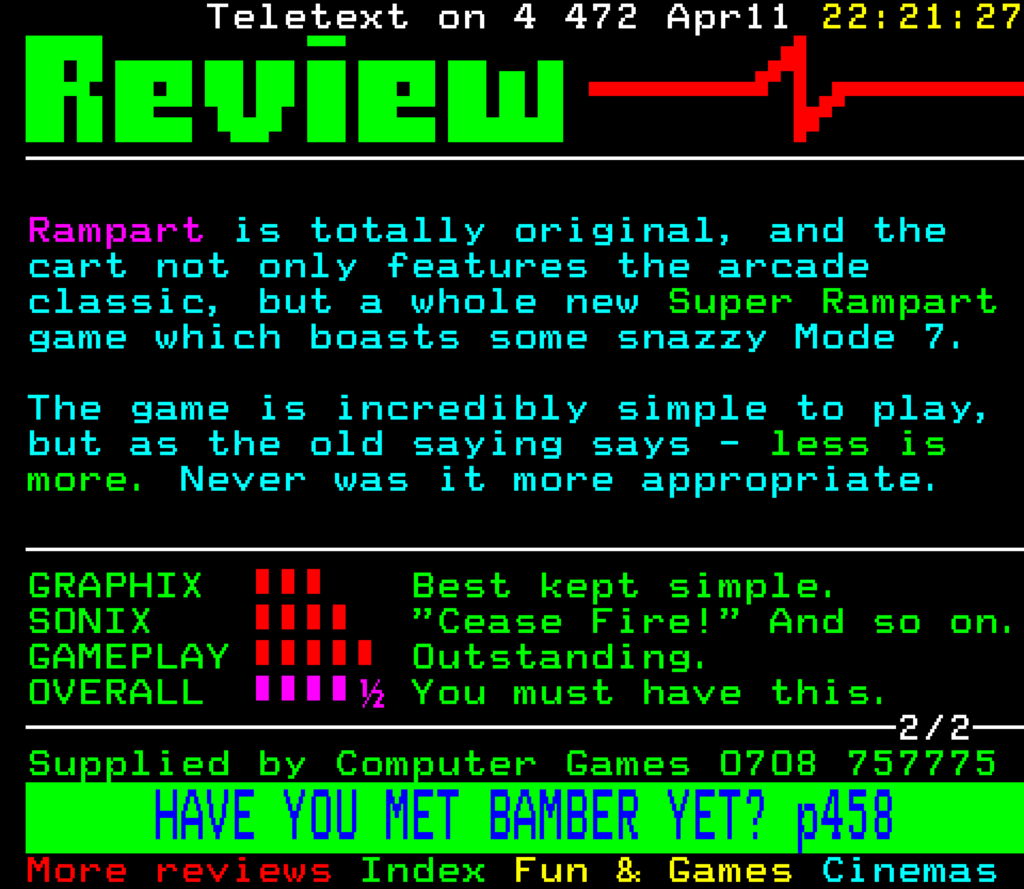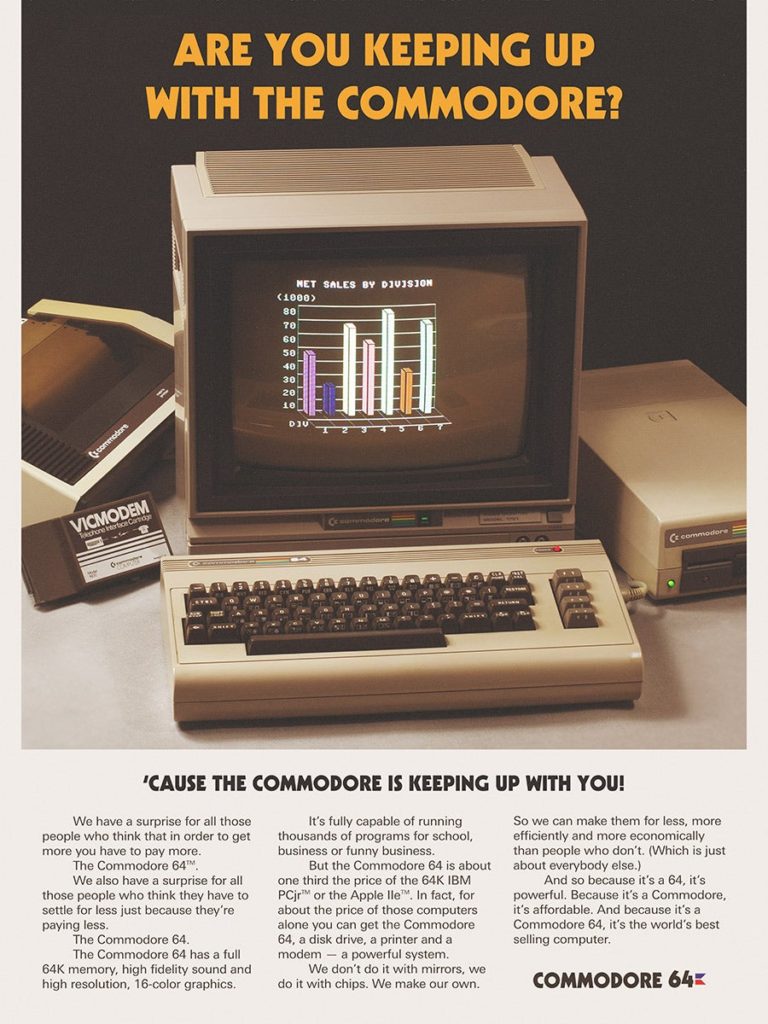
I’m a bit fuzzy on all this and open to correction, but….
In the UK, as far back is 1978, there was an electronic text service called Oracle, of no relation to the current-day owner of Java, OpenOffice, and VirtualBox. It was launched as a competitor to the even-older BBC service Ceefax that launched in 1974. In 1993 Oracle turned into Teletext, Inc. Teletext lasted for a good long while, up until 2009.
There is much more to that story, but we’re getting into the weeds. Our subject is the early teletype video game magazine Digitizer, a service provided on Teletext. Digitizer lasted from 1993 to 2003, a solid ten years full of typically cheeky 90’s British video game news content, delivered through the medium of ASCII text and artwork.

It’s a whole world of gaming enthusiasm from a lost era, and in it one can see the birth of a whole subculture. Some of these people are still writing today over on the site digitizer2000, although sporadically it seems. The site Super Page 58 has worked hard to archive as much of their content as they can, including a voluminous, yet still incomplete, listing of reviews.

The History of Digitizer, and Digitizer today.

